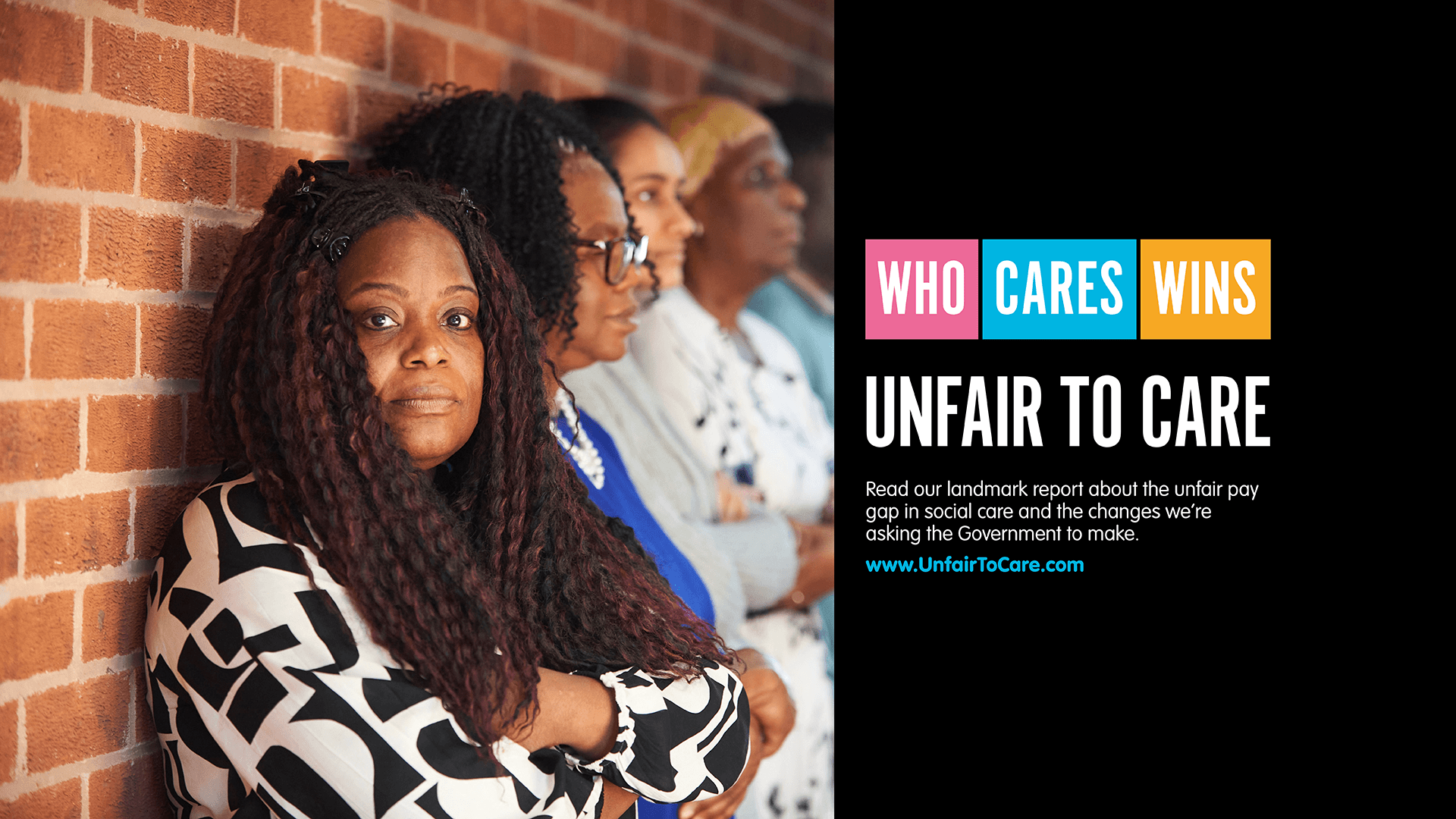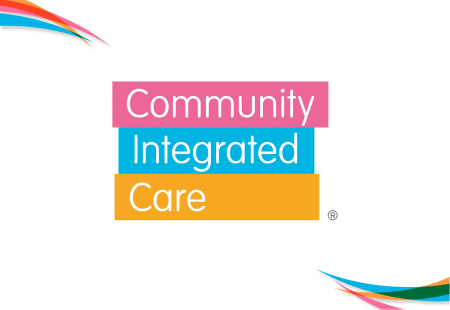

News
13/03/2024
We launch Unfair To Care
Community Integrated Care has today launched ‘Who Cares Wins – Unfair To Care 2024′, the third edition of our charity’s Unfair To Care series – the definitive analysis of the social care pay gap and its impact on people, communities, the care sector and the economy. You can read the full report here.
The report, which will be launched in Parliament later today (Wednesday 13th March) – has revealed a once-in-a-generation opportunity to end the workforce challenges in social care, with exclusive public and MP polling finding consensus that the social care pay gap must be addressed. Highlighting the importance of a 2.6m strong ‘social care vote’, it indicates that the challenges of social care may influence the course of the 2024 election.
The social care sector has, for decades, faced extensive workforce challenges – driven by significant funding pressures that result in low pay for a highly complex, skilled, and accountable job role. With 152,000 vacancies and a 28.3% workforce turnover rate in 2023[i], these issues create a cascade of negative impacts across society – reducing the quality of life of people supported, impacting capacity and stability in the NHS and social care systems, and constraining economic productivity.
Unfair To Care uses exclusive measurement by Korn Ferry – international leaders in job evaluation – to reveal that the average social care worker would take home £7,617[ii] more per year if they delivered a role with comparable responsibilities in the NHS. With the present rate of pay estimated at just £10.93[iii] for a position that has been found to be highly skilled and accountable, social care careers are uncompetitive compared to those in its partner sector, the NHS, and in easier commercial roles.
Public and Political Desire For Change
As the challenges in the social care sector have become increasingly apparent, earlier this year our charity commissioned YouGov to conduct exclusive polling to assess the views of political officials and the public[iv].
Shockingly, the report finds that 77% of MPs believe that the current rate of average pay for social care workers is unfair. More than 9 in 10 polled MPs (92%) say social care pressures are important to their constituents, with 8 in 10 MPs (80%) saying that the next government should act to improve pay, terms, and conditions for care workers. This cross-party recognition of the challenges creating fresh hope for a political solution to this long-standing crisis.
Our report also finds significant support for the social care sector amongst the public. In polling of adults in England[v], 87% of participants expressed that the shortage of care workers is an essential issue for society, with 95% saying that social care workers deliver an important role for society.
With more than half of the population – 53% of people – stating that they will have a more favourable view of political parties that address the issues of low pay, the report argues that we are arriving at a moment where the public and politicians are increasingly aligned in the importance of addressing the challenges faced by care.
Electorally Significant, Economically Sustainable
Unfair To Care 2024 finds that there is a 2.6 million strong ‘social care vote’ of people who work in and draw on social care in England – an average of 5,000 people per constituency – that can have a defining impact on almost 100 marginal constituencies.
Exploring in detail how workforce shortages fundamentally impact the quality of life of people who draw on social care and their loved ones – with a lack of stability meaning that many people cannot access the relationship-focussed care that they need, and that of carers too, with many facing deep personal challenges as they fight to make ends meet, it is clear that this will be a primary consideration for many.
Importantly, the report demonstrates that improving pay is significantly offset by the savings it will deliver in several areas – including reducing the costs of care sector recruitment by £1.4 billion and saving £1.7 billion by supporting more timely discharges from NHS hospitals, amongst several areas of economic impact.
Teresa Exelby, Chief People and Corporate Services Officer at Community Integrated Care, says: “At present, many social care providers are struggling to survive, so providing parity of pay is impossible without government support. However, our evidence shows that this is one of the most socially, economically, and morally positive investments that the government can make. Investing in fair pay for social care workers will deliver the Social Care Triple Win – improving the lives of people who provide and draw on social care, providing more cost-effective and sustainable care and health services, and supporting economic growth and productivity.
I am privileged to work with thousands of people who live their dream of enabling others to live theirs. But against the joy is real despair too – people working tirelessly to still need the support of foodbanks, friends, or family, finding that they are one ordinary life shock away from personal disaster. Access to stable care and support should be respected as a fundamental human right. Things must change, and the public is behind us. Excitingly, we can see that politicians from across the House are too.”
Phil Hope, former Minister of State for Social Care and Chair of the Launch event, says: “This report’s polling reveals strong respect amongst the public for social care workers, a recognition of the importance of fair pay, and a desire for political action on the issue. In parallel, there is strong Parliamentary consensus – driven by a recognition by MPs in all parties of the concerns of their constituents – that the next Government should act to improve terms and conditions.
“For too long, the challenges faced by people who work in social care have been left unresolved because of a supposed lack of political or public will. Unfair to Care highlights that there is both public and political impetus for change. There is a once-in-a-generation opportunity to now get this right. Parity of pay for care workers with their NHS equivalents is long overdue. The journey should start with an immediate rise.”
[i] ‘The state of the adult social care sector and workforce in England’, Skills for Care, October 2023
[ii] NHS Agenda for Change Pay Scale for 2023/24 – Band 3 roles
[iii] Figures used are average rates for Support Worker roles in England (outside London) and are taken from the National Care Forum’s national pay benchmarking exercise of the not-for-profit sector, October 2023
[iv] Between 4th and 26th January 2024, YouGov completed online interviews with a representative sample of 107 MPs weighted by party, gender, electoral cohort, and geography, to give a sample that is representative of the House of Commons. This was augmented with additional interviews with 19 MSPs between 4th and 22nd January 2024.
[v] All figures, unless otherwise stated, are from YouGov Plc. Total sample size was 1,798 adults. Fieldwork was undertaken between 9th – 10th January 2024. The survey was carried out online. The figures have been weighted and are representative of all adults in England (aged 18+).










